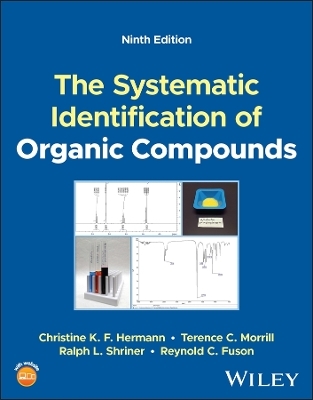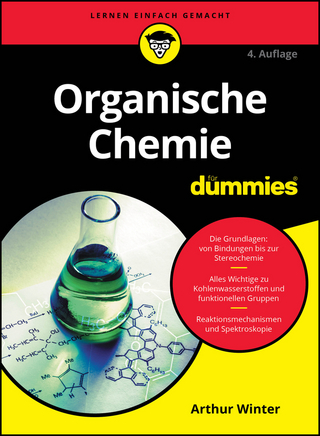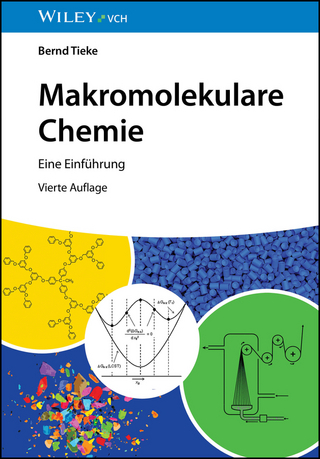
The Systematic Identification of Organic Compounds
John Wiley & Sons Inc (Verlag)
978-1-119-79966-5 (ISBN)
Identifying unknown compounds is one of the most important parts of the study of chemistry. From basic characteristics such as melting and/or boiling point to more complex data generated through cutting-edge techniques, the range of possible methods for identifying unknown organic compounds is substantial. The utility of a research reference which compiles known techniques and characteristics of possible compounds is clear.
The Systematic Identification of Organic Compounds provides such a reference, designed to teach a hands-on approach in the chemistry lab. It takes readers step-by-step through the process of identifying an unknown compound and elucidating its structure from infrared, nuclear magnetic resonance, and mass spectra in addition to solubility characteristics, melting point, boiling point, and classification tests. The result is an essential overview for advanced chemistry students looking to understand this exciting area of laboratory work.
Readers of the ninth edition of The Systematic Identification of Organic Compounds will also find:
A detailed chapter on safety, personal protection equipment, chemical storage, safety data sheets, and other safety concerns
New NMR, IR, and mass spectra with detailed explanations on interpretation
Questions at the end of each chapter designed to facilitate and reinforce progression, keyed to a companion website for instructors
Tables of known compounds including data relevant for identification
Companion website with structural problems from experimental data for students to practice how to reason and solve
The Systematic Identification of Organic Compounds is a useful reference for advanced undergraduates and graduate students studying organic chemistry, organic spectroscopy, and related subjects.
Christine K. F. Hermann, PhD is Professor and Chair of the Department of Chemistry, Radford University, Radford, Virginia, USA.
Preface ix
About the Companion Website xi
Chapter 1 Introduction 1
1.1 Systematic Identification of Organic Compounds: The Need for Organic Qualitative Analysis 1
1.2 Suggestions to Students and Instructors 3
Chapter 2 Laboratory Safety 7
2.1 Working Safely in the Laboratory 7
2.2 Training 10
2.3 Personal Protection Equipment 10
2.4 Safety Data Sheets 11
2.5 Storage of Chemicals 12
2.6 Disposal of Chemicals 13
2.7 Safely Using Equipment in the Laboratory 13
Chapter 3 Identification of Unknowns 15
3.1 Discussion of Report Form 15
3.2 Preliminary Examination 22
3.3 Physical Properties 22
3.4 Molecular Weight Determination 22
3.5 Molecular Formula Determination 23
3.6 Solubility Tests 23
3.7 Infrared, Nuclear Magnetic Resonance, and Mass Spectra Analyses 24
3.8 Classification Tests 24
3.9 Preparation of a Satisfactory Derivative 25
3.10 Mixtures 26
3.11 Report Forms 26
Chapter 4 Preliminary Examination, Physical Properties, and Elemental Analysis 31
4.1 Preliminary Examination 32
4.2 Determination of Physical Properties 34
4.3 Optical Rotation 53
4.4 Recrystallization 58
4.5 Qualitative Elemental Analysis 61
4.6 Quantitative Elemental Analysis 69
Chapter 5 Classification of Organic Compounds by Solubility 75
5.1 Solubility in Water, Aqueous Acids and Bases, and Ether 76
5.2 Solubility in Organic Solvents 95
Chapter 6 Separation of Mixtures 99
6.1 Preliminary Examinations of Mixtures 100
6.2 Distillation and Sublimation 101
6.3 Extractions: Separations Based Upon
6.4 Chromatography 119
Chapter 7 Nuclear Magnetic Resonance Spectrometry 145
7.1 Theory of Nuclear Magnetic Resonance 145
7.2 Preparation of the Sample 149
7.3 Proton Spectra 151
7.4 13C Spectra 165
7.5 DEPT 179
7.6 COSY 188
7.7 HSQC 190
Chapter 8 Infrared Spectrometry 227
8.1 Theory of Infrared Spectrometry 227
8.2 Preparation of the Sample 230
8.3 Functional Group Identification 234
Chapter 9 Mass Spectrometry 269
9.1 Theory of Mass Spectrometry 269
9.2 Cleavage Reactions 271
Chapter 10 Chemical Tests for Functional Groups 293
10.1 Acid Anhydrides 296
10.2 Acyl Halides 306
10.3 Alcohols 307
10.4 Aldehydes 323
10.5 Amides 332
10.6 Amines and Amine Salts 334
10.7 Amino Acids 349
10.8 Carbohydrates 351
10.9 Carboxylic Acids 359
10.10 Esters 360
10.11 Ethers 361
10.12 Halides 365
10.13 Hydrocarbons--Alkanes 371
10.14 Hydrocarbons--Alkenes 371
10.15 Hydrocarbons--Alkynes 378
10.16 Hydrocarbons--Aromatic 379
10.17 Ketones 384
10.18 Nitriles 386
10.19 Nitro Compounds 386
10.20 Phenols 389
10.21 Sulfonamides, Sulfonic Acids, Sulfonyl Chlorides 393
Chapter 11 The Preparation of Derivatives 397
11.1 Carboxylic Acids, Acid Anhydrides, Acid Halides 397
11.2 Alcohols 409
11.3 Aldehydes And Ketones 414
11.4 Amides 420
11.5 Amines 424
11.6 Amino Acids 432
11.7 Carbohydrates 437
11.8 Esters 440
11.9 Ethers--Aliphatic 450
11.10 Ethers--Aromatic 451
11.11 Halides--Alkyl 454
11.12 Halides--Aromatic 457
11.13 Hydrocarbons--Aromatic 460
11.14 Nitriles 462
11.15 Nitro Compounds 467
11.16 Phenols 468
11.17 Sulfonic Acids, Sulfonyl Chlorides, Sulfonamides 472
Chapter 12 Chemical Literature 479
12.1 Handbooks 480
12.2 Compendia 480
12.3 Spectral Collections 481
12.4 Journals 482
12.5 Abstracts and Indexes 483
12.6 Monographs 486
Appendix I Handy Tables for the Organic Laboratory 487
APPENDIX II Table of Derivatives 493
Appendix III Equipment and Chemicals for the Laboratory 677
Index 685
| Erscheinungsdatum | 31.03.2023 |
|---|---|
| Verlagsort | New York |
| Sprache | englisch |
| Gewicht | 1746 g |
| Themenwelt | Naturwissenschaften ► Chemie ► Organische Chemie |
| ISBN-10 | 1-119-79966-X / 111979966X |
| ISBN-13 | 978-1-119-79966-5 / 9781119799665 |
| Zustand | Neuware |
| Informationen gemäß Produktsicherheitsverordnung (GPSR) | |
| Haben Sie eine Frage zum Produkt? |
aus dem Bereich


